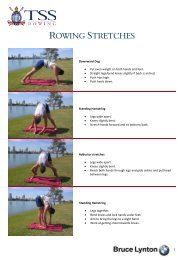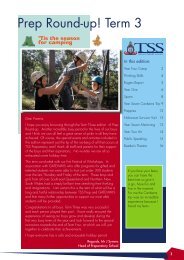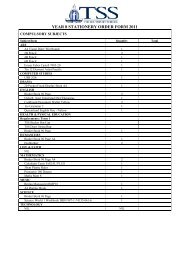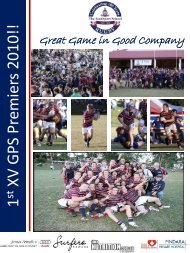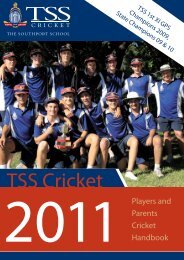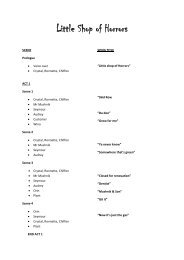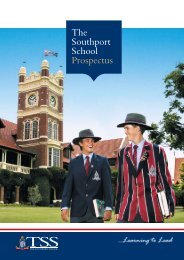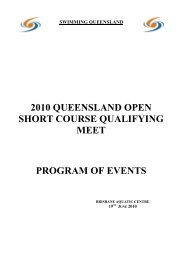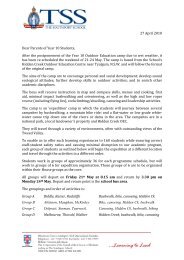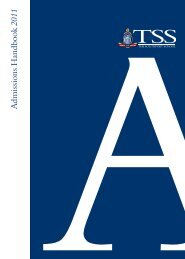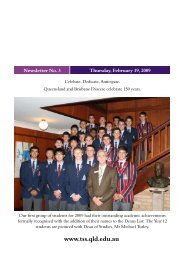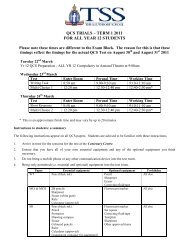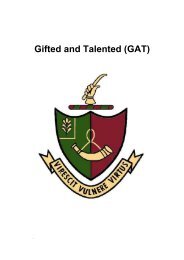2010 TSS ROWING HANDBOOK - The Southport School
2010 TSS ROWING HANDBOOK - The Southport School
2010 TSS ROWING HANDBOOK - The Southport School
Create successful ePaper yourself
Turn your PDF publications into a flip-book with our unique Google optimized e-Paper software.
WHY “HEAD OF THE RIVER”?<br />
Instead, the 'Head' is meant in the sense of 'at the head of a procession on the river'.<br />
Because England's rivers are narrow and sinuous, crews, two or more abreast, presented problems,<br />
particularly in Oxford and Cambridge.<br />
Collisions and 'bumps' were inevitable!<br />
Even today, coxswains on the River Cam are required to shout "permission to overtake, Sir" when<br />
approaching another crew from the rear during training. However the universities came up with a<br />
solution for their races. At the firing of the cannon they started crews off in a long row, each a<br />
regulated distance apart. <strong>The</strong> idea was to row fast and 'bump' the crew ahead. <strong>The</strong>se boats would<br />
then swap positions for the next race. Eventually the fastest boat would reach the front of the queue<br />
and be declared the "Head of the River".<br />
Today, these races are held over four days twice a year in the Lent and Trinity terms.<br />
<strong>The</strong> largest Head of the River race is held on the River Thames between Mortlake and Putney, the<br />
same course as the Oxford and Cambridge boat race, but in reverse.<br />
Four hundred and twenty Eights compete in this annual event but the aim is not to bump a crew but<br />
cover the course in the fastest time. Crews are started at five second intervals but with so many<br />
boats competing collisions are inevitable.<br />
“When we gather for the happiest week in all the year, it is the<br />
brotherhood of rowing, the comradeship of the oar that we<br />
recall, when eight men who have trained until they have<br />
become a single drive, a single trust of forward flashing<br />
wrists, face suddenly the crisis towards which that selfless toil<br />
has led them, and know that every link in all that pulsing<br />
chain of flesh and blood rings true. For us, there are no<br />
centuries or duck’s eggs, no goals or gallery kicks, no<br />
individual distinctions where the crew are all in all . <strong>The</strong> rattle<br />
of the riggers of the finish, the music of the tide, beneath her<br />
body as she shot between the strokes, the grim yet heartening<br />
sound of splendid and unbroken strength when all eight<br />
blades crashed in together – these are the things that on one<br />
who has heard and felt them will ever forget.<br />
Some delirium. Some tremens. Some kaleidoscope.”<br />
Sir <strong>The</strong>odore Cook<br />
22



